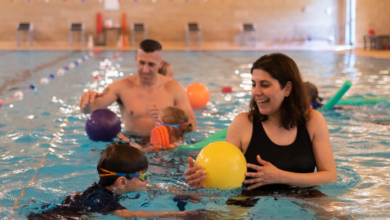Daycare Near Me: Finding Quality Childcare Options Quickly

Finding reliable daycare close to home is a priority for many parents balancing work and family life. The best daycare near me offers a safe, nurturing environment where children can learn, play, and develop social skills. Parents should consider factors like location, staff qualifications, and available programs to select the right fit for their child’s needs.
Daycare options vary widely, including large centers with structured curricula and smaller facilities with a more relaxed approach. Many local daycares provide specialized activities such as language focus, arts, or before- and after-school care, adding value beyond basic supervision. Understanding these options helps families make informed choices.
How to Find the Best Daycare Near Me
Finding a daycare involves comparing different options carefully, focusing on safety, learning environment, and staff quality. Key elements include the facility’s features, proper accreditation, and licensing to ensure your child’s care meets established standards.
Evaluating Childcare Options
Parents should start by listing daycare nearby centers and visiting them in person. Observing cleanliness, child-to-staff ratios, and daily routines is essential. It is important to ask about staff experience, turnover rates, and how they handle discipline and emergencies.
Communication is another factor; a center should provide regular updates on child development and activities. Checking reviews and seeking recommendations can provide additional insights. Availability of flexible hours and location convenience are also practical considerations.
Key Features of Quality Daycares
A quality daycare offers a safe, stimulating environment tailored to age-appropriate learning. Look for well-structured curriculum, balanced playtime, and opportunities for social interaction. Outdoor play areas are an important part of physical development.
Staff should be caring, qualified, and consistent. Facilities must maintain hygiene and safety protocols, including secure entry points. Transparent policies about food, naps, and illness help prevent confusion. Progress reports and parent involvement enhance trust and engagement.
Accreditation and Licensing Requirements
Licensed daycares comply with state regulations covering health, safety, and staff qualifications. Licensing ensures minimum standards are met, such as supervisor-to-child ratios and sanitation.
Accreditation from organizations like the National Association for the Education of Young Children (NAEYC) indicates a daycare exceeds basic requirements. Accreditation involves rigorous evaluation of curriculum, staff training, and facility quality.
Parents should verify a daycare’s license status online and inquire about any past violations. Accreditation is optional but a useful sign of a center’s commitment to high standards.
See also: How Physical Therapy Helps Improve Mobility and Quality of Life
Factors to Consider When Choosing a Local Daycare
Parents must evaluate crucial elements that impact a child’s daily experience and family logistics. Key areas include the daycare’s approach to safety, the professionalism of staff, and how costs align with family budgets.
Safety and Cleanliness Standards
A daycare should have strict safety protocols to protect children from accidents and illnesses. This includes secure entrances and exits, child-proofed environments, and regular safety drills. Cleanliness is equally important, with daily sanitization of toys, surfaces, and play areas.
Check for adherence to local licensing and health regulations. Regular inspections validate compliance and ensure the environment remains safe. Parents should also consider the ratio of caregivers to children to avoid overcrowding, which can compromise supervision and hygiene.
Staff Qualifications and Training
Qualified staff foster a supportive learning environment. They should have formal education in early childhood development and current certifications in first aid and CPR. Continuous training on child behavior, safety, and specialized needs is essential.
Staff turnover rates affect consistency. Long-term caregivers can form meaningful bonds, aiding emotional growth. Parents should ask about staff-to-child ratios and observe interactions to confirm staff are attentive, nurturing, and experienced.
Cost and Payment Options
Daycare fees vary by age group, location, and program type. Infants typically cost more, often between $1,700 to $2,200 monthly in urban areas. Toddlers generally have slightly lower fees. Understanding the fee structure, including deposits, late fees, and holiday charges, is important.
Flexible payment plans and subsidies can ease financial strain. Parents should inquire if the daycare offers sliding scale fees, government assistance, or payment by week or day rather than monthly. Transparent cost communication prevents unexpected expenses.





